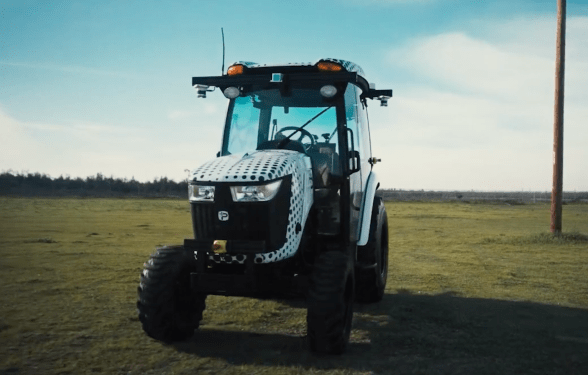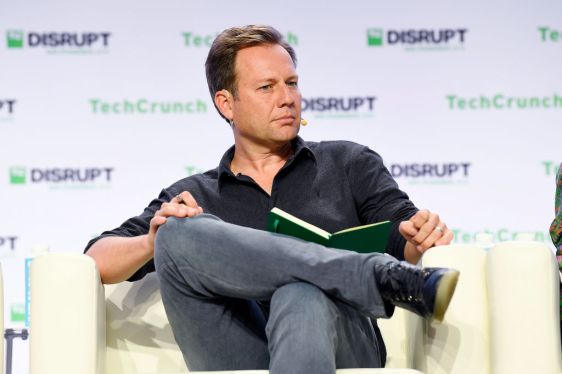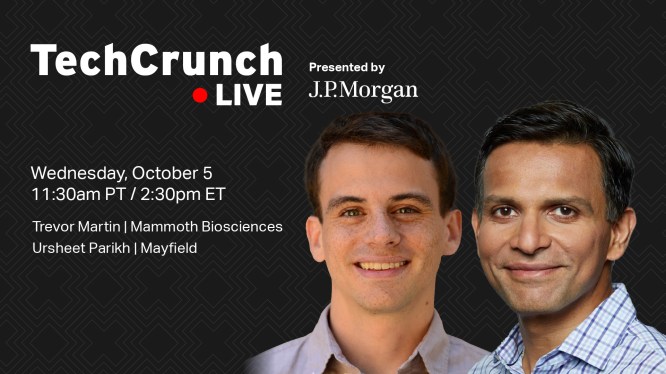Robots Suck
It’s a bold declaration for a startup founder aiming to work with robots — or more accurately, the software that helps turn a tractor, tiller or forklift into an automated vehicle. But Stefan Seltz-Axmacher, who previously founded and led the now shuttered autonomous vehicle startup Starsky Robotics, is trying to make a point.
"They’re really difficult, they break all the time and getting to a stable product is really hard," Seltz-Axmacher said in a recent interview. "Everyone kind of ends up building nearly everything from scratch, for nearly every application."
To make matters more complex, robots used in warehouses, mining, agriculture and other industrial environments have hyper-specific applications that are structured and are often repeated thousands of times. In other words, the farmer in Iowa, the yard truck operator in Florida and the e-commerce giant with 100 warehouses spread throughout the country have specific needs that require customized solutions.
The Challenge of Customization
Seltz-Axmacher’s comments highlight a common challenge facing companies working on robotics and automation: creating products that are both flexible and reliable. The complexity of industrial environments, combined with the need for customization, makes it difficult to develop software or hardware that can meet the diverse needs of various industries.
However, Seltz-Axmacher is not just complaining about the difficulties of working with robots; he’s also proposing a solution. He believes that the key to making robotics more accessible and easier to use lies in creating software platforms that are similar to SaaS (Software as a Service) solutions. These platforms would allow companies to plug into their business needs without having to build everything from scratch.
The Oracle of Robotics
One investor who shares Seltz-Axmacher’s vision is Matt Sweeney, general partner at Thursday Ventures. Sweeney believes that the startup has the right product, at the right time.
"What’s appealing about this approach is that I can see a future of an Oracle-like company of robotics," Sweeney said. "All sorts of businesses come to Oracle for hardware and software solutions for their business, and with minor configurations can plug it into their business. If you project forward 10 to 15 years where can this end up? It’s an enormously audacious goal, but I think it can also continue to provide value all along the way."
Sweeney’s comparison between Oracle and a potential robotics company is apt. Just as Oracle provides software solutions that can be easily integrated into various industries, Seltz-Axmacher’s startup aims to create a similar platform for robotics.
The Future of Robotics
While Seltz-Axmacher’s vision may seem ambitious, it’s not entirely far-fetched. With the increasing demand for automation and artificial intelligence in various industries, creating software platforms that can meet specific needs is becoming more pressing. If his startup succeeds, it could revolutionize the way companies approach robotics and automation.
However, achieving this goal will require significant investment and innovation. Seltz-Axmacher has already secured funding from angel investors with backgrounds in autonomous vehicle technology, software, and robotics. But he’ll need to continue pushing the boundaries of what’s possible to create a platform that can meet the diverse needs of various industries.
Conclusion
Robots may be complex and difficult to work with, but Seltz-Axmacher is proposing a solution that could simplify their use and make them more accessible to various industries. With the increasing demand for automation and artificial intelligence, his vision for a software platform that’s similar to SaaS solutions may not be as far-fetched as it seems.
As Sweeney noted, creating an Oracle-like company of robotics would require significant investment and innovation. But if Seltz-Axmacher’s startup succeeds, it could revolutionize the way companies approach robotics and automation, making them more flexible and reliable in meeting specific needs.
Additional Reading
- The Future of Robotics: How robots are changing industries and shaping the future
- Automation and AI: The increasing demand for artificial intelligence and automation in various industries
- Software as a Service (SaaS): How SaaS solutions are simplifying software use and making it more accessible to various industries
About the Author
Kirsten Korosec is a reporter and editor who has covered the future of transportation from EVs and autonomous vehicles to urban air mobility and in-car tech for more than a decade. She is currently the transportation editor at TechCrunch and co-host of TechCrunch’s Equity podcast.



